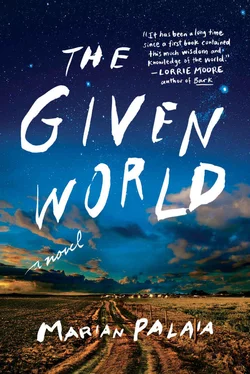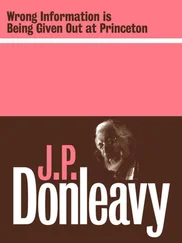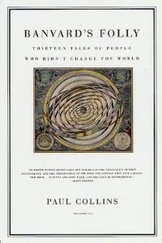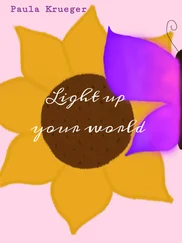Christopher looks up at me where I have stopped in the doorway, and pats the couch between him and Max. Max looks away, but not before I see the traces of mascara on his cheeks. All I can think is, I never knew he wore mascara. I thought he just had the most incredible eyes . And: That is not my place. If I sit in that spot, it will mean something is terribly wrong.
I do sit down, though, and for a long minute, no one moves or speaks. When Max begins to say something, Christopher says, “No. I did this. I should tell.”
I have never seen either of them let the other one do anything hard, alone, and this is clearly something hard. Max sits completely silent and stares straight ahead, his mouth tight and his hands pressed between his knees.
“I infected Max,” Christopher says, his voice in pieces.
“I thought you were—”
Max makes a small sound, like a small animal, and puts his head in his hands. I can’t remember ever seeing anyone actually do that before. “False negative,” he says. Then he says it again. As if he were testing the sounds. As if he could make the words mean something different if he says them enough.
Christopher says, “We — I didn’t wait long enough. There was this guy. Just this one guy. This one night. Right before I met Max.” The words go wobbly. “There’s a window. Six months.”
Max laughs, in a way that sounds almost like a real laugh, and it gives me hope for a minute that I have misunderstood something, or that “infected” means the flu.
“Nice round number,” Max says, when he is finished with the laugh that only sounded like one. “Where do they come up with this shit?”
I have never heard him swear like that before. Not like he means it to do harm. I want to go to my room, close the door, stuff the last few months in the closet, and wait for the whistling to begin again. I know it isn’t going to. And I know I have to say something. They are waiting for me to say something.
I say, “I still want to stay. Here. With you.” I know it isn’t right. This isn’t about what I want or how long I am staying or anything about me at all. But it is all I can think of, and I have to say it. Even if it is the wrong thing entirely. Even if is the dumbest, most oblivious thing I can say. Even even even.
Max looks at me and tries to smile, but it doesn’t take. He looks across me at Christopher, shakes his head, and gets up. “Do you think there’s any other place that would have us?”
He goes to their room and closes the door, so quietly the click of the lock barely registers. I reach for Christopher’s hand, crawling mine hesitantly across the couch; a spider’s crawl. He holds onto it for a few seconds, squeezes, and lets go. He stands up and squares his slim shoulders, like a child who has been called to the principal’s office for passing notes, and walks resolutely down the hall to the door Max has just closed. Door number three . Christopher taps on it, ever so softly, but loud enough for Max to hear. There is no answer.
I watch as Christopher presses his ear to the wood, but I cannot hear what he is hearing, or begin to know what sign of prayer, or absolution, or abdication he is listening for.
Or maybe I can. Maybe I do know.
I know I’ve heard it somewhere: if in a dream you are falling, and you land, you will never wake up. I’ve had plenty of falling dreams but so far have never hit the ground, and I wonder now if similar rules apply to dreams about trains crashing into each other or derailing all on their own.
There is, obviously, only one surefire, practical way to avoid finding out, too late, that the rules do apply, and that would be to jump from this train before I fall asleep and begin to dream. I’ve survived longer drops. Have the scars to prove it.
I also know that a potential crack-up and the temptation to bail have approximately nothing to do with each other.
I am on my way — on something called the Coast Starlight — to Portland, where I will switch to a line that heads northeast. This train’s name is slightly misleading, as it actually left the coast somewhere around San Luis Obispo. From Sacramento we traveled up the center of California, in the dark, though I’m pretty sure I caught the briefest glimpse of Shasta’s sun-blasted peak at daybreak.
If I do decide to jump, it would be good if a horse (a real one) were there, galloping alongside. Maybe a blue-eyed paint pony, brown with splashes of white to match his legs. I would leap into the saddle, exactly as if I knew how to do that, and we would ride off into the hills, to a place where there is no past, no lurking future. This train gives me far too much time, to remember and try to process. Everything. All there is or ever was.
The freshest hell has been mostly self-inflicted, sure, but that really is, at this point, beside the point. Because all that matters right now is I am heading back (praying at the very least for a daylong breakdown) to the place where everything I’ve buried all these years waits, resurrected and suspended in the distance; a collectible set of decapitated, snake-haired Gorgon’s heads, hung on my mother’s clothesline to dry.
Jesus. Settle the fuck down .
• • •
After the border we carry on through the western half of Oregon, stopping midmorning at Klamath Falls. I got off another train here, a dozen years ago, and the next morning stood between my mom and dad at Crater Lake, shivering and looking down from the snowy overlook at each other’s wavering reflections, dropping pebbles into the arctic-blue water. My folks had driven from Montana, and I had come from California, presumably to celebrate my birthday. I don’t know if “neutral ground” applied but think there could possibly be some situational equivalent — if we could even have named the situation — but that would have been asking a lot. In any event, turning thirty had freaked me out, partially because it felt so old, but mostly because I don’t suppose I’d ever expected to make it that far. I suspect my parents had been equally astonished and came at least partially to prove to themselves that the birthday girl was no imposter. And because they loved her. Me. That was real.
When they took me back to the train station the next day, my dad helped me with my bag, even though it was small, and there was hardly anything in it.
He said, “Do you ever think about—?”
“Sometimes. Really, Dad. I will. I still know how to get there. Don’t worry.”
“Okay, then,” he said. “I won’t.” It would never occur to him I didn’t mean it, and I have always envied that kind of trust. And I did mean it, for someday, and someday comes whether or not it suits all your well-laid plans, or the ones that were not laid (or plans) at all.
There had been no fighting when I left home, no falling-out — I simply went away. Or not simply so much as quietly, as there hadn’t really been anything simple about it. In almost twenty-five years we have met only that once, though contact has grown more frequent, and easier, as we have finally come to our own terms, I suppose, with all the freight of family and love and losing and not exactly telling the truth, to ourselves or to each other. It has become bearable, but only in retrospect. No clear delineation in the arc of time’s passing, just the realization that we have all, somehow, survived (three out of four, anyway, so I guess “all” really means the ones we know for sure are still standing). For the standing ones, there has been life. Lives. More than one each, I reckon. For me? For sure.
In Portland, I find the right track in the huge old station, but no train. I wander the neighborhood for a while, find myself at the river, and am happy, for this moment, to be there. It is always good to be near water, and I already feel the dull ache of missing the ocean. Of all the mind- and body-altering substances I dipped myself into in San Francisco, the ocean, as it turns out, finally proved the most addictive.
Читать дальше












